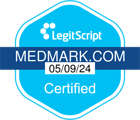In Westmoreland County, overdose from both prescription and illegal drugs is the leading cause of death among accidents and suicides. And this is true since 2008.1 The need for medication-assisted treatment is urgent to save lives. Medication-assisted treatment is highly successful because addicts can bypass the worst part of withdrawal. The body transitions off of the illegal drugs to methadone, buprenorphine, or Suboxone, which are safe and effective. Taking methadone, buprenorphine, or Suboxone keeps the body stable. Counseling and support complete the treatment to prevent relapse.
A new normal with medication-assisted treatment
Addicts become former-addicts with medication-assisted treatment. They find that they get back to the person they were – in a good way – before opiates took over their life. Long-term use of opioids makes people feel sick much of the time. Before treatment, without the opioids, your body becomes nauseous, sweaty, and it’s difficult to sleep. There is a feeling of chronic anxiety or panic. It’s a terrible way to live. But when you say, “Enough,” and start medication-assisted treatment, it’s a different story. The first day is the hardest day. But it’s only a day. After that, the doctor knows how much methadone (or buprenorphine or Suboxone) to prescribe. You’re closely monitored to get the dosage right so that your body can safely come off of heroin or other opioids.
It’s important to understand that medication-assisted treatment isn’t trading one addiction for another. Your medical professional will look at your specific situation and know which medicine is the best for you. The medication you receive is legal and safe. In fact, it’s safe for pregnant women and women who are breastfeeding. Methadone, buprenorphine, and Suboxone stabilize the body without any feeling of euphoria. The body is able to stop craving the drugs that were addictive. It may seem logical to take the least amount possible of medication treatment. Actually, most people have greater success on higher doses. Your medical professional will know what’s best.
How to increase the success of medication-assisted treatment
Addiction is about more than the body. Opiates such as prescription painkillers, codeine, morphine, heroin, fentanyl create strong psychological addictions. That’s why it’s so difficult to stop. Counseling and support are a lifeline for many people. You’re able to talk in a safe environment about what started and kept you in addiction. It’s helpful to be in a place where people understand where you’ve been and where you want to go. Talking and listening to others helps break the cycle. Many people choose to continue support groups for years. It keeps their life on track.
Physical exercise
Healthy movement is good for the body and mind. You don’t have to be a super athlete. As your body begins to get back to normal functioning, physical exercise makes you feel better. It may be as simple as a regular walking routine or taking a yoga class. Many people who got into illegal drugs through painkillers now seek out other forms of relief for chronic pain. Chiropractic treatments or massage may be effective for targeting painful joints, muscles, back or neck pain. The chiropractic adjustments also restore blood flows, which is healing to the body. Massage has some of the similar benefits. Chiropractors are also good sources for nutritional information that also makes you feel better.
What we want you to know is that successful life change is possible. Medication-assisted treatment has an over 50 year history of safe and effective transitioning off of opioids. We want to see a reverse in the statistics in Greensburg, PA and Westmoreland County.
1 Westmoreland County, PA. (2016). Drug Overdose Taskforce
Greensburg, PA
1037 Compass Circle
Greensburg, PA 15601
TEL: 724.834.1144
FAX: 724.834.2077



